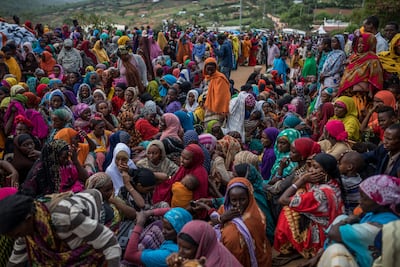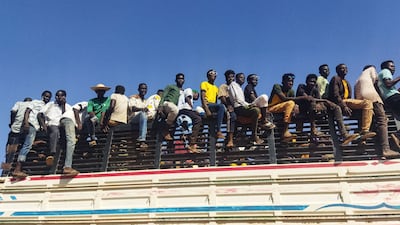There were once high hopes that this would be the “African century”. The term encapsulated a desire to see the continent overcome the legacies of colonialism and exploitation, and move towards a future in which, buttressed by economic prosperity and political stability, many African nations would play a decisive role in an increasingly multi-polar world.
As we approach the quarter-way point in that journey, the picture looks mixed. Some parts of the continent have become richer; the World Bank in October predicted that East Africa’s economy was heading for record growth of 1.8 per cent in 2023 while West Africa was expected to grow at 3.3 per cent. Africa also has the advantage of being the world’s youngest continent, with all the talent and energy that brings – according to the UN nearly three quarters of people in sub-Saharan Africa are under the age of 30.
Nonetheless, the continent continues to suffer from too many conflicts that are raging unchecked but seem to remain below the radar on the world stage. These wars threaten not only local stability but risk derailing an entire continent’s prospects by driving millions of people from their homes.

This week, Radhoune Noucier, a human rights expert appointed by the UN High Commissioner to monitor Sudan, told UN News that out of the war-torn country’s 45 million people, more than 7.6 million had been forcibly displaced since last April, with 1.6 million of them fleeing to neighbouring nations for shelter. This nine-month conflict, which worryingly shows little sign of stopping, adds to the population movements generated by conflicts, insurgencies and instability elsewhere in Africa, such as in the Sahel, the Central African Republic, the Democratic Republic of the Congo and Somalia. Elsewhere, reports of impending famine in the devastated Ethiopian region of Tigray as well as recent tensions between Addis Ababa and Cairo over Somaliland’s access to the Red Sea present additional challenges.
According to the Africa Centre for Strategic Studies, the continent is experiencing a decade-long trend in which the number of Africans who have been forcibly displaced has risen over the past 12 months and now stands at more than 40 million people. This uprooting of whole communities acts as a driver for irregular migration and presents serious challenges for fragile African economies, countries where governance is corrupt or weak, or where security is lacking. And, contrary to some popular assumptions, migration streams in Africa do not move northwards towards Europe only. South Africa, the richest country in that part of the continent, has been the scene of violent and xenophobic protests over the presence of migrants from neighbouring states.
This is an issue that is not going away. The International Monetary Fund says the population of sub-Saharan Africa is projected to double from 1 billion to 2 billion by about 2050 – and most of this population will be young or of working age. Unless the tangled web of conflict, flawed government and uneven economic growth that blights a number of the continent’s countries is tackled, displacement and involuntary migration will continue to hold back the continent’s progress.
There is little doubt that the war in Gaza and its spreading effects have commandeered much of the world’s attention. Given the extreme nature of what’s unfolding, this is understandable. But the fact that Africa’s latest war – the conflict unfolding in Sudan- is not garnering global action is a worrying indication of indifference.
If those countries or regions that are concerned with global security and some of whom struggle to cope with undocumented migrants – many fleeing Africa’s wars – are serious about resolving the issue, then redoubling efforts to resolve the Sudan conflict is a good place to start. Sudan’s war has been going on for close to a year, with too many false dawns. The longer it continues, the more Sudanese will suffer and millions will be forced to flee. This scenario is playing out across the continent and unfortunately bodes ill for the “African century”.


